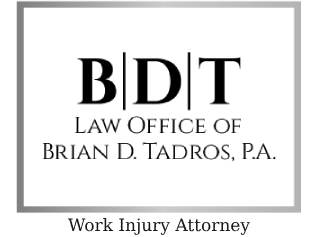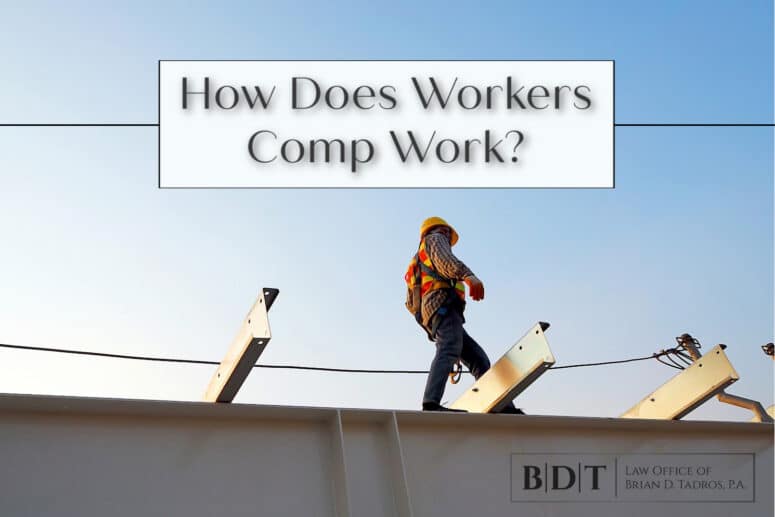If you have been injured in a workplace accident, you have probably been told that you’re entitled to receive workers comp benefits. But compensation claims are complicated, and most people scratch their heads and wonder, “How does workers comp work?”
Whether you know it as workers compensation, workers comp, workman’s comp, or workmen’s comp (spoiler alert: they’re all the same thing), there is a lot you should be aware of before you navigate this often-confusing industry.
At The Law Offices of Brian D. Tadros, we practice workers comp law and only workers comp law, and we use this experience every day to help injured employees just like you understand their compensation claim and reach a desirable outcome.
What is Workers Compensation?
To answer the question “how does workers comp work?” you must first have some knowledge of the compensation system.
Unlike disability benefits, FMLA, and unemployment programs, workers compensation is an insurance program that covers injuries that occur while performing your daily job.
Just as you might carry home or auto insurance, your employer carries workers comp insurance. In the event of a workplace injury, their insurance company pays benefits to the injured employee.

How Does Workers Comp Work?
Because there are so many parties involved, the workers compensation process can be confusing at first. Here’s a step-by-step look at how it works.
File a Report
After a work related injury, the injured worker must file a report within 30 days of:
- the date of the injury or illness;
- their knowledge of the injury or illness, or;
- a doctor’s determination that they cannot return to work.
It is vital that you file a report and not just take an Advil and “walk it off.” If those 30 days pass and your injury turns out to be more serious than you initially thought, it will be too late to file a claim. Reporting your job injury merely acts as a “bookmark” in the event you need additional medical care.
Your employer will typically ask you to fill out a First Report of Injury form, which they will then send to the insurance company. However, you should always follow up to make sure that this has been done. If your employer hasn’t reported your injury to their insurance company, contact the workers compensation board (known in Florida as the Bureau of Employee Assistance and Ombudsman) to identify the insurance carrier and report the injury yourself.
Seek Medical Treatment
Next, you should seek medical treatment as soon as possible. If you feel that you need immediate treatment, request authorization from your employer to visit the ER or an urgent care clinic. If they refuse permission but you feel it is necessary, go anyway. Your health is more important!
If you don’t need treatment right away, request that your employer notify you of where you can go to receive authorized medical treatment. Your authorized treating doctor—determined by the insurance company—will be in charge of monitoring your recovery.
They will also be crucial in determining the extent of your workplace injuries, whether there is any permanent impairment, and what physical limitations you may have, so make sure you follow their advice.
Returning To work
If your doctor says you can’t return to work, listen to them! Going against your physician’s orders could cause your workers comp claim to be denied.
In many cases, your treating doctor will clear you to return to work, but with restrictions. S/he will provide you with a DWC-25 form at the end of your doctor’s visit, which will list your limitations. Send copies to your employer and the insurance company and keep one for your records.
If your employer can accommodate your restrictions, you must take the job available or risk losing your workers comp benefits.
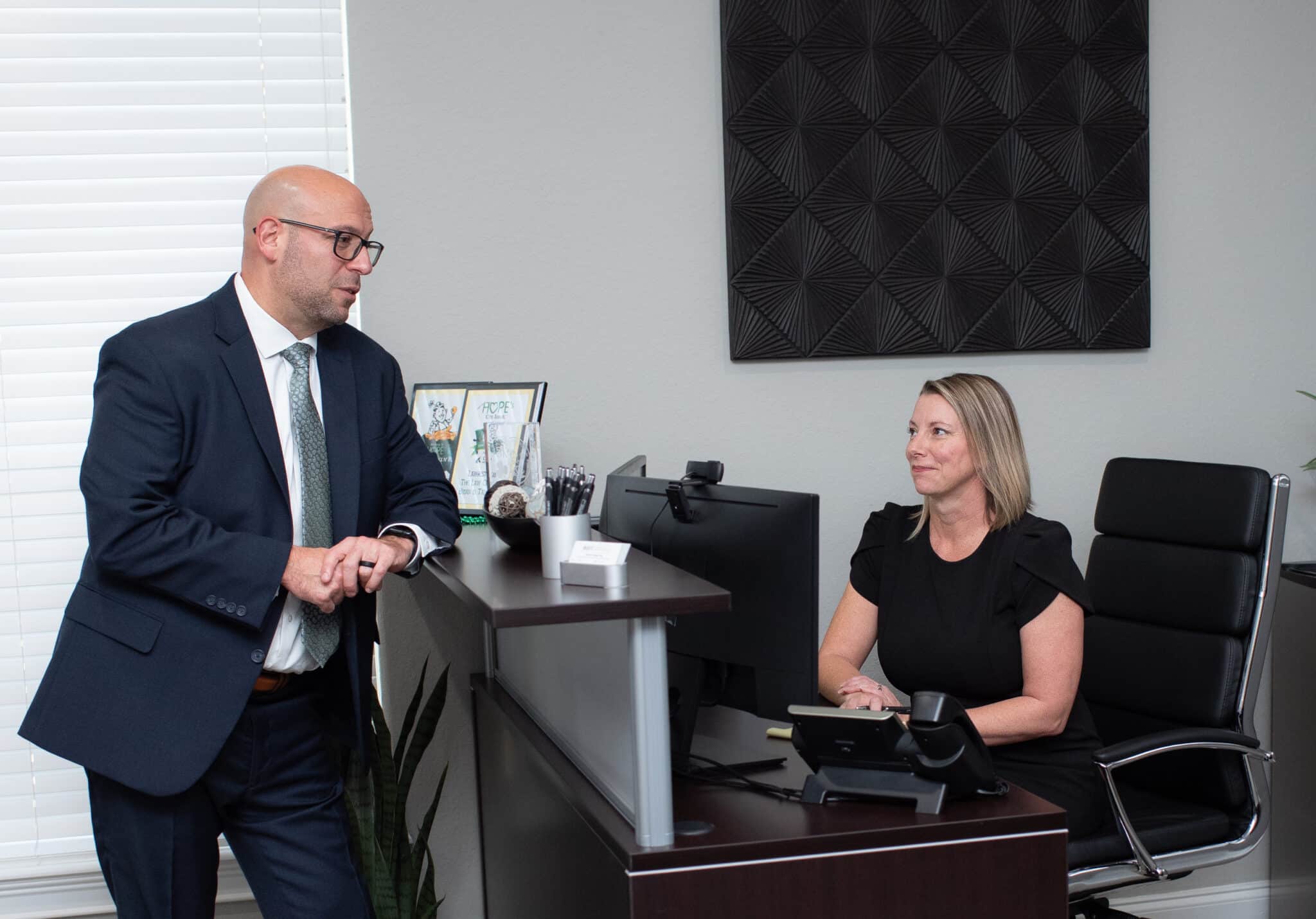
Contact an Attorney
Regardless of how straightforward your workers comp case seems at first, it’s always a good idea to schedule a consultation with a qualified workers comp attorney.
A lawyer can provide you with much-needed information and guidance from their personal experience within the industry. As your case (not to mention your physical condition) evolves, they will be familiar with the details of your particular injury or illness and be able to represent you better.
How Much Will I Get Paid?
Your weekly benefits are calculated based on your average weekly wage (AWW). To get your AWW, the insurance company looks at the total amount you earned over the 13 weeks prior to your injury and divides that total amount by 13.
Once your AWW has been determined, your workers’ compensation can be calculated based on whether your injuries are temporary or permanent, partial or total. Partial injuries simply mean you can still do some work, while total injuries mean you cannot work at all.
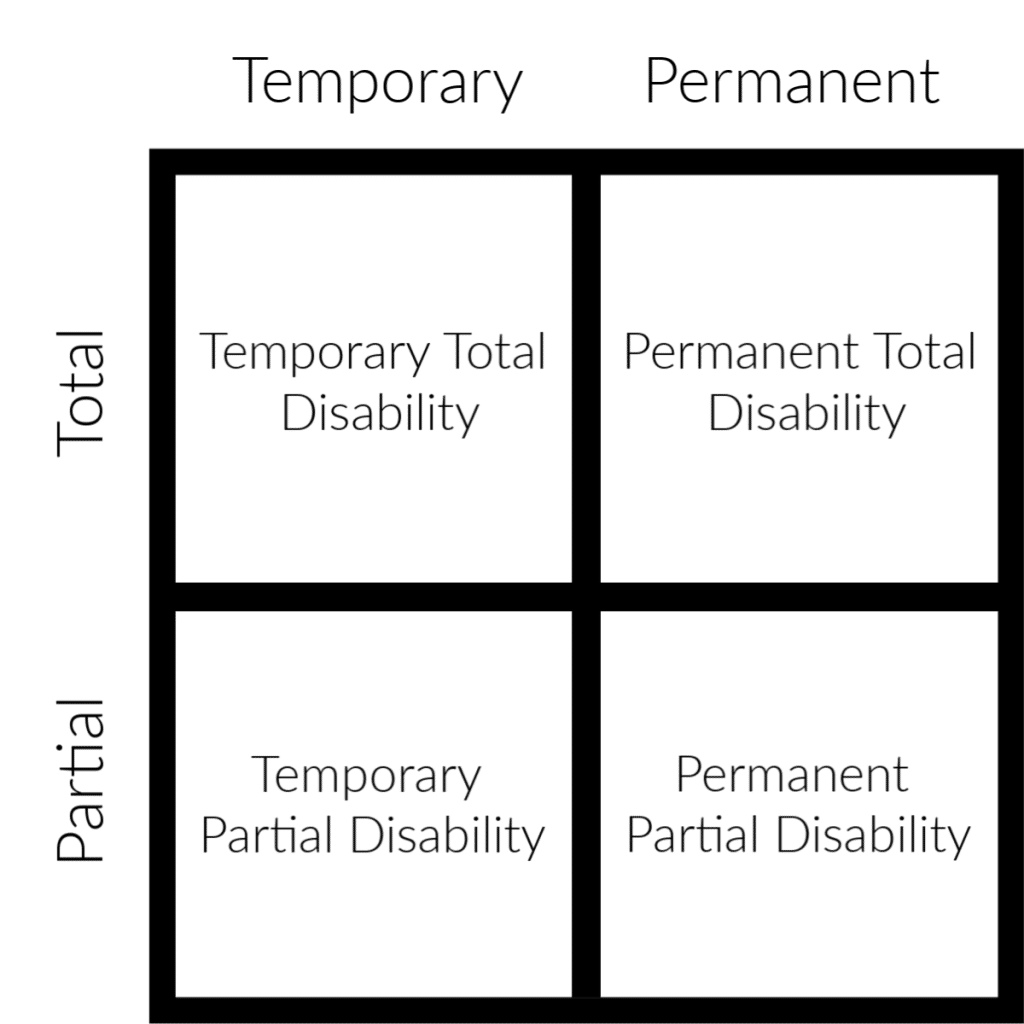
If you are on Temporary Partial Disability (TPD), you will only receive workers comp payments if your post-accident wages while on light duty are less than 80% of your AWW. If this is the case, they will subtract your current earnings from 80% of your AWW, then multiply that total by 80%.
If you are on Temporary Total Disability (TTD), you will receive 66.66% of your AWW until:
-
- your doctor changes your work status from “no work” to light duty or full duty;
- you reach your Maximum Medical Improvement (MMI), the point at which further recovery is no longer expected; or
- you have reached the legal limit for collecting workers compensation benefits.
If you are on Permanent Total Disability (PTD), you will receive 66.66% of your AWW until you reach the age of 75. It is very uncommon to qualify for PTD; if the insurance company can establish that you are capable of performing a sedentary job within 50 miles of your home, you will not qualify for these benefits.
If you are on Permanent Partial Disability, you may be entitled to collect both workers’ comp payments and SSDI.
What Does Workers Comp Cover?
The workers comp checks you receive in the mail each month are designed to cover your lost wages, but workers comp covers much more than that.
While on workers comp, you will not have to pay medical expenses from your pocket. Instead, your authorized treating physician will send all medical bills directly to the insurance company. If you need any prescriptions, equipment, or even surgery, the workers comp policy will cover that as well.
If your accident leaves you with a permanent injury, workers comp will also cover vocational rehab so you can start on a new career path, if necessary.
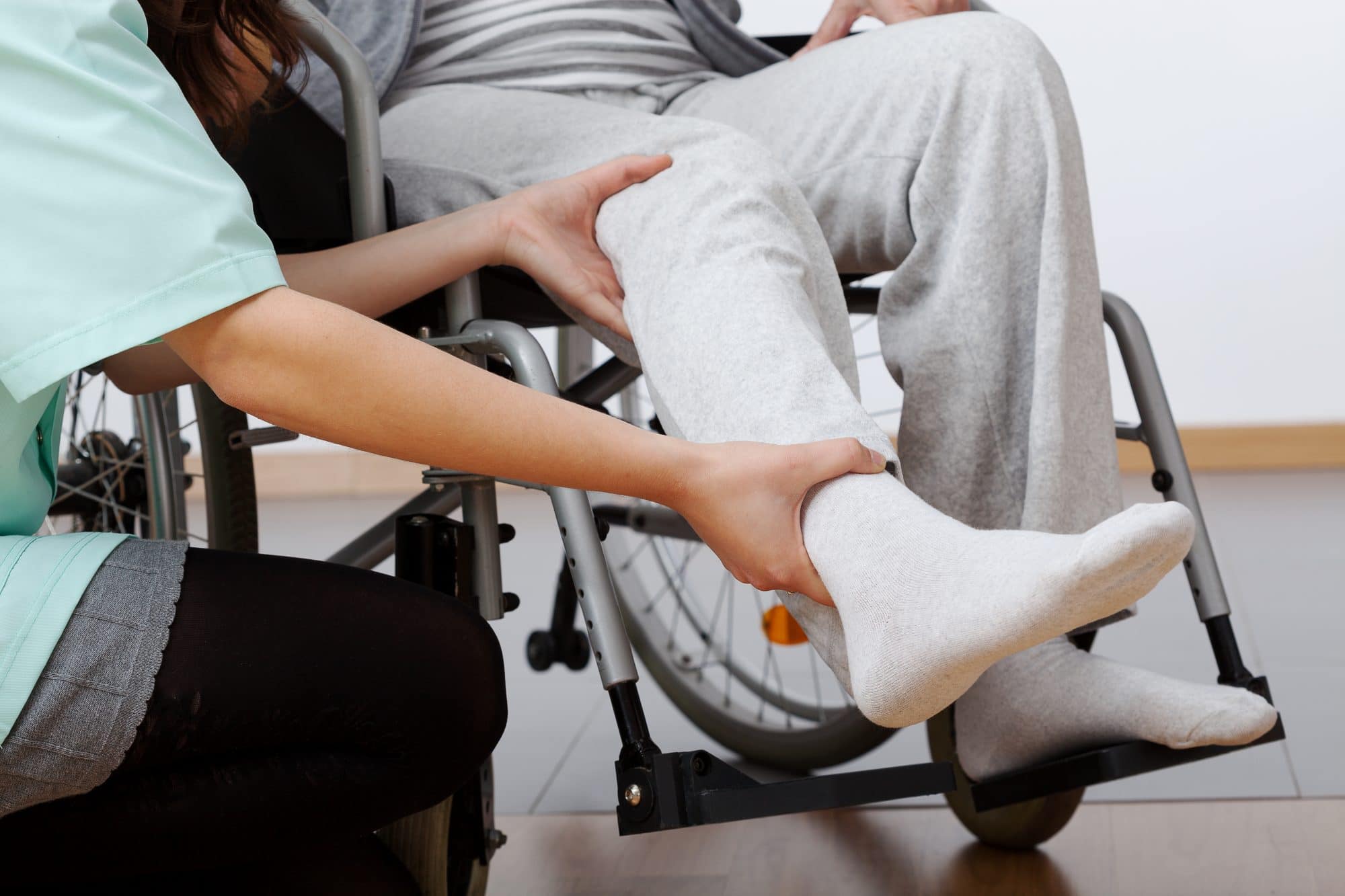
In the unfortunate event that you or a loved one passes away due to a work-related accident, funeral costs will be covered and dependents will receive regular death benefits.
While pain and suffering are not compensable through workman’s comp, psychological conditions that stem directly from a covered workplace injury are. An exception to this is PTSD among first responders. Due to a recent amendment to the law, first responders can now obtain workers comp coverage for PTSD even when there is no accompanying physical injury under certain circumstances.
Do I Really Need a Workers Comp Lawyer?
Yes!
If you’re asking yourself the basic question “How does workers comp work?”, then you already understand how complex your case can become. Neither your employer, the insurance company, nor your doctor are concerned with representing your interests.
A workers comp lawyer is invaluable for guiding you through the process and providing information at every step of the way. Their experience in the industry will help you get the full amount of benefits you are entitled to and prevent you from accepting a settlement offer that is unfair.
At The Law Offices of Brian D. Tadros, we practice only workers compensation law and our focus remains on injured employees just like you. Remember, the insurance company definitely has a team of legal professionals on their side, so don’t go into your workers compensation claim alone!
Schedule a free consultation with Brian Tadros to see how we can defend your rights.
